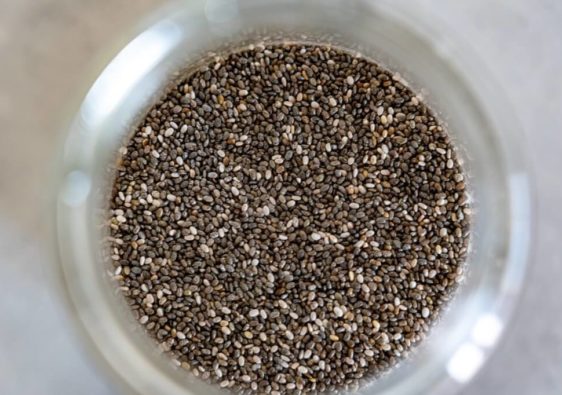“Only eat when hungry.” We’ve all heard this advice over and over again, it sounds sensible and yes I agree, it would probably solve the majority of our problems in regards to overeating, however, things have gotten much more complicated nowadays. Let’s look at some of the reasons that make us “think” we’re hungry and why practicing intermittent fasting (IF) may actually be more sound advice.
This article is inspired by AC: The Power of Appetite Correction, 2015 by Bert Herring, MD
VISUAL HUNGER

This type of hunger has become so much more prevalent in recent years with the rise of social media. The hashtag #foodporn on Instagram currently houses 258million tantalising images of food (#food contains 440mil images). On top of that, we are constantly bombarded by adverts and billboards depicting gigantic images of all the foods imaginable tempting you on every corner. You see a big fat juicy burger, chocolate dripping milkshake or a half bitten ice lolly, and you can’t help but want it. Looking at images of tasty food makes us feel hungry.
These are some highlights from a 2016 study analysing visual hunger and its consequences:
Dramatic physiological and neurophysiological changes seen in response to food images
There is a danger that our growing exposure to beautifully presented images of food having detrimental consequences
The notion of visual hunger – the desire to view beautiful images of food, and consequent changes in organism, is introduced.
SOLUTIONS:
You can decide to avoid or to actively focus on diverting your attention away from food images. You can also ask yourself how much value is following food hashtags giving you. Control what you can control.
INTERMITTENT FASTING
When you set your eating window it doesn’t matter how many food images you’ll see, you will only eat when your time comes. You are in charge of your eating despite all the temptation surrounding you. Intermittent fasting creates a healthy barrier between food marketing and your weight goals.
MOUTH HUNGER
You may have just finished a large satisfying meal but now you want something sweet, despite feeling satiated. Or you have just finished a lavish dessert but now you feel like something savoury to balance out the sweet taste, or perhaps you have a craving for salted vinegar peanuts. Mouth hunger is the urge to eat purely to entertain your tastebuds. That’s all. Yet again, with the amount of new flavour combinations coming at us daily it is incredibly hard to resist the desire to want to try them all. Shopping online as I mentioned in my previous article on weight loss can be a helpful tool to minimise these urges. Have you noticed that cravings more often than not desire carbohydrate-rich processed food.
SOLUTIONS
The obvious solution would be to cut out all artificially flavoured and processed food. Try and eat food in its most natural form. Anything overtly salty or sweet will make you want to eat more.
INTERMITTENT FASTING
The practice of intermittent fasting can be the best tool to avoid craving and overeating on snacks. Once your eating window closes you’re done thinking about food. You brush your teeth and you carry on fasting until your eating window opens again.
TV HUNGER

This falls into category of “eating when distracted”. It is the type of hunger which arises when doing other tasks such as browsing the internet or working at your desk. Doing this regularly can lead to a powerful habit formation and as with any habitual behaviour, it is a struggle to unlearn. Most of what people eat when distracted are yet again highly processed, high in calories but low in nutrients snacks.
INTERMITTENT FASTING
When you set a clear boundary for your eating time with intermittent fasting, you eliminate ‘eating when distracted’ type of hunger. IF puts you in control. If you enjoy snacks when watching TV, you can always adjust your eating window so that you have some room for that without spoiling your IF routine. Include TV snacks in your eating window.
BOREDOM HUNGER
This hits home especially nowadays with many people being off of work. How many times do you go and check the fridge simply because you feel bored. You don’t eat because you’re hungry, you eat because you have nothing else to do. Eating has become your hobby.
This article published in The National Library of Medicine analysed 552 students and councluded that:
(..) boredom and difficulties in emotion regulation simultaneously predicted inappropriate eating behavior, including eating in response to boredom (..)
INTERMITTENT FASTING
When you fast for a set amount of hours daily, you learn to keep yourself busy. Staying busy, creating activities, occupying yourself is an essential part of intermittent fasting. This may be challenging at the start but overtime you will find other things to do other than walking to the fridge.
EMOTIONAL HUNGER
Have you ever felt upset and the only thing that could make you feel better was a tub of ice cream or a bar of chocolate? Emotional hunger involves eating because we’re sad, eating because we’re stressed, eating because we’re happy or tired, or eating to reward ourselves. It isn’t “real” hunger but it is real enough to honour it on a regular basis. Associating emotions with eating may not only lead to weight gain but will not solve any isssues you need to solve. Believe it or not yet again the foods people turn to are usually carbohydrate-rich and highly processed.
The results of 2014 study published in the Journal of Consumer Psychology concluded that:
negative mood, (..), leading to greater preference for indulgent foods over healthy foods.
INTERMITTENT FASTING
When you start practicing IF, just as with boredom eating, you will be forced to find other ways to deal with your emotions. You will not be able to turn to food, instead you may call a friend, have a bath, go for a walk, clean the house, start a blog, all much more productive activities other than eating junk food.
CLOCK HUNGER
Bert Herring describes this as “your body’s biological ticking” (p36). The idea behind clock hunger is that eating at the same time every day teaches your body to expect food at that time. This may not be a problem, however if can become one if you train your body to eat every 3 hours and you keep gaining weight. He claims that this can be unlearned if you simply stop. For example, if you eat breakfast every morning, you will always wake up feeling hungry but if you stop eating breakfast, overtime, your body won’t be expecting food in the morning and you will not feel hungry.
INTERMITTENT FASTING
The core principle of intermittent fasting is to control what time of the day and for how long you will eat. Restricting your eating time inevitably regulates your food intake. If you regularly skip breakfast, you will eventually not feel hungry in the morning. I attest to this, as I’ve not eaten breakfast since 2016 and frankly, the idea of eating first thing in the morning has now became unimaginable for me.
THERE’S MORE...
There also is EAR hunger, NOSE hunger, appetite driven eating, pms hunger, limbic hunger, hanger, all this on top of somatic aka belly hunger. The solution for all of these, in my opinion, is not will power, it is implementing intermittent fasting in your daily routine. Fasting sets a clear boundary for your eating, you will learn what real hunger is and you will have to find new, hopefully more productive ways to deal with emotions and boredom.
You probably also noticed me pointing out that the common food choice used to satisfy the above mentioned types of hunger, always involves highly processed carbohydrate-rich foods. If you want to go a step further, consider eating a low carb diet in combination with intermittent fasting.
Hope this was helpful to you xox


